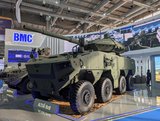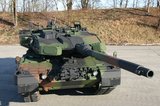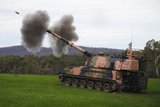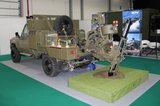Will future ground fleets finally embrace hybrid electric solutions?
GDLS AbramsX has been fitted with a hybrid power pack. (Photo: GDLS)
Issues preventing a broader use of hybrid electric capabilities have remained a pertinent issue despite armies and industry paying great attention to the technology. Some of the challenges can be related to budget, performance and mobility.
Andrew Halonen, mechanical engineer and president of US-based company Mayflower Consulting, explained to Shephard that adding hybrid electric capabilities can increase the weight of military vehicles.
“It means you have motors, electric motors, extremely heavy powertrain and inverters, and batteries that are super dense and super heavy,” Halonen pointed out. “That means additional weight – and how are you going to offset that weight so that you can still
Already have an account? Log in
Want to keep reading this article?
More from Land Warfare
-
![US Army plans Q2 prototype proposal request for its Mobile Tactical Cannon programme]()
US Army plans Q2 prototype proposal request for its Mobile Tactical Cannon programme
The US Army is seeking a mature 155mm, wheeled, self-propelled capability to replace the towed M777 howitzer in the Stryker, Mobile and Infantry Brigade Combat Teams as it targets a potential 498-unit acquisition goal.
-
![British Army’s Project Stokes 120mm mortar bids due in March 2026]()
British Army’s Project Stokes 120mm mortar bids due in March 2026
Project Stokes could see a new 120mm mortar capability enter British service, with domestic production and international partnerships central to competing bids.
-
![MKJ Warrior Series — The Nett Warrior Qualified Connector for Today’s Soldier Systems]()
MKJ Warrior Series — The Nett Warrior Qualified Connector for Today’s Soldier Systems
ITT Cannon’s MKJ Warrior connectors are designed for the harshest environments, delivering mission critical comms, navigation and USB data/power.






















